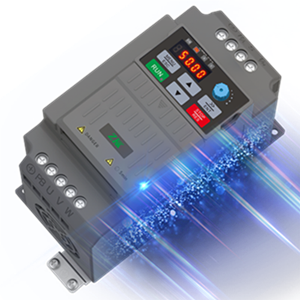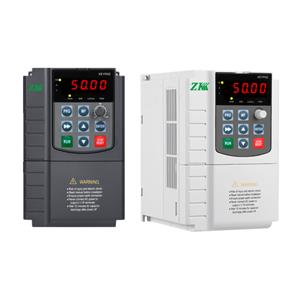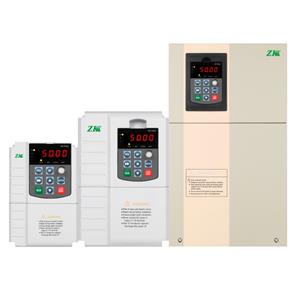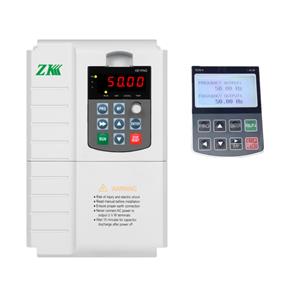The integration of solar water pumps with inverter technology
The integration of solar-powered water pumps and inverter technology represents a significant advancement in sustainable agriculture, water management, and energy efficiency. This innovative integration of solar-powered water pumps and inverter technology harnesses the potential of renewable energy and modern electrical engineering to create systems that are both environmentally sustainable and operationally efficient. This paper provides a detailed examination of the principles, benefits, and applications of the integration of solar-powered water pumps and inverter technology, emphasizing its transformative potential in water pumping systems across diverse sectors.
Principles of Solar-Powered Water Pumps
Solar-powered water pumps operate by utilizing photovoltaic panels to convert solar energy into electrical power, which subsequently drives the pump mechanism. The integration of solar-powered water pumps and inverter technology is particularly advantageous in remote or off-grid locations where access to conventional electricity is either limited or entirely absent. The fundamental components of the integration of solar-powered water pumps and inverter technology include photovoltaic panels, a pump unit, a controller, and, in certain configurations, a storage battery to ensure continuous operation during periods of low sunlight.
The Role of Inverter Technology
Inverter technology is integral to optimizing the performance of the integration of solar-powered water pumps and inverter technology. An inverter technology converts the direct current generated by the photovoltaic panels into alternating current, which is required by most conventional water pumps. Contemporary inverter technology is equipped with advanced functionalities such as maximum power point tracking, which ensures that the photovoltaic panels operate at their peak efficiency irrespective of variations in sunlight intensity.
Integration of Solar-Powered Pumps and Inverter Technology
The integration of solar-powered water pumps and inverter technology offers several significant advantages:
Enhanced Efficiency: Inverter technology with maximum power point tracking maximizes the energy harvested from the photovoltaic panels, ensuring that the integration of solar-powered water pumps and inverter technology operates at its highest possible efficiency. This is particularly critical in regions characterized by fluctuating sunlight conditions.
Operational Flexibility: Inverter technology facilitates the use of standard alternating current pumps, which are generally more readily available and cost-effective than specialized direct current pumps. This flexibility simplifies the integration of solar-powered water pumps and inverter technology design and maintenance procedures.
Scalability: The integration of solar-powered water pumps and inverter technology can be easily scaled to meet varying water demands. Additional photovoltaic panels and inverter technology components can be incorporated to augment the system's capacity without necessitating extensive modifications.
Reliability: Inverter technology provides a stable and consistent power supply to the integration of solar-powered water pumps and inverter technology, mitigating the risk of system failures and extending the operational lifespan of the equipment.
The integration of solar-powered water pumps and inverter technology has a broad spectrum of applications:
Agricultural Irrigation: Farmers can employ the integration of solar-powered water pumps and inverter technology to irrigate crops, thereby reducing reliance on diesel-powered pumps and lowering operational costs. This is particularly beneficial in arid regions where water resources are scarce.
Domestic Water Supply: Rural communities can achieve reliable and sustainable water supply systems through the integration of solar-powered water pumps and inverter technology, enhancing quality of life and alleviating the burden of fetching water from distant sources.
Livestock Farming: The integration of solar-powered water pumps and inverter technology can ensure a consistent water supply for livestock, thereby promoting animal health and productivity.
Environmental Conservation: The integration of solar-powered water pumps and inverter technology can be utilized to maintain wetlands, replenish groundwater, and support reforestation initiatives, thereby contributing to environmental sustainability.
Challenges and Future Prospects
Despite the numerous benefits, the integration of solar-powered water pumps and inverter technology faces challenges. The initial capital expenditure for installation can be substantial, though often offset by long-term energy cost savings. Additionally, the efficiency of the integration of solar-powered water pumps and inverter technology can be influenced by factors such as dust accumulation on photovoltaic panels and sunlight availability variability.
Future advancements in photovoltaic technology, energy storage solutions, and inverter technology design are anticipated to address these challenges. Innovations such as smart inverter technology with grid communication capabilities, coupled with more durable photovoltaic panels, are expected to enhance the integration of solar-powered water pumps and inverter technology performance.
The integration of solar-powered water pumps and inverter technology offers a sustainable and efficient solution for water pumping needs across various sectors. By harnessing solar energy and leveraging advanced electrical engineering, the integration of solar-powered water pumps and inverter technology provides a reliable and environmentally friendly alternative to conventional pumping systems. As technological advancements evolve, the potential for the integration of solar-powered water pumps and inverter technology to contribute to global sustainability efforts will increase, solidifying its role as an essential component of future water management and renewable energy systems.




